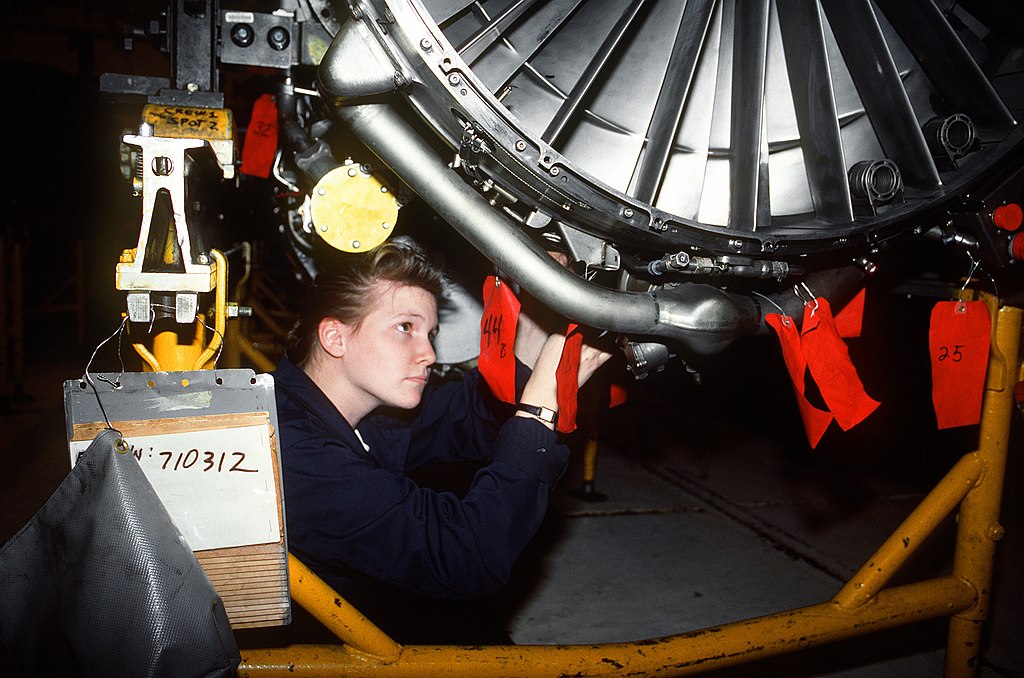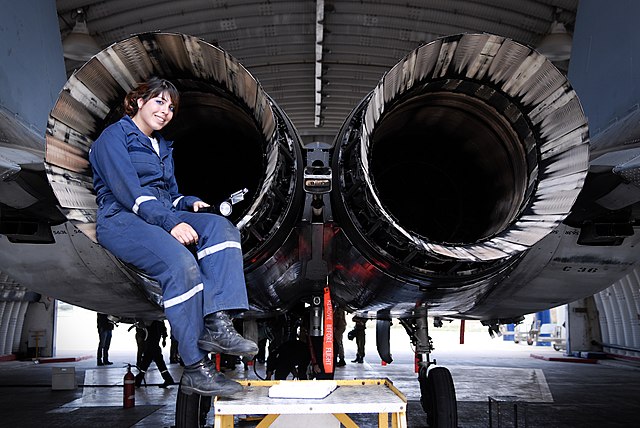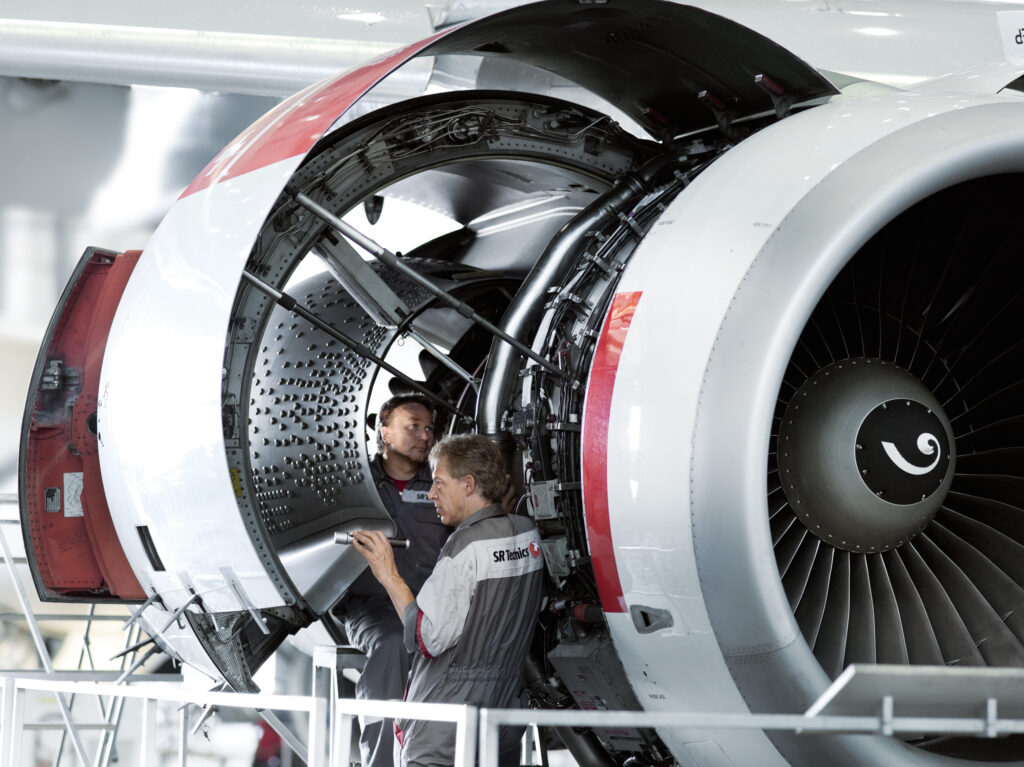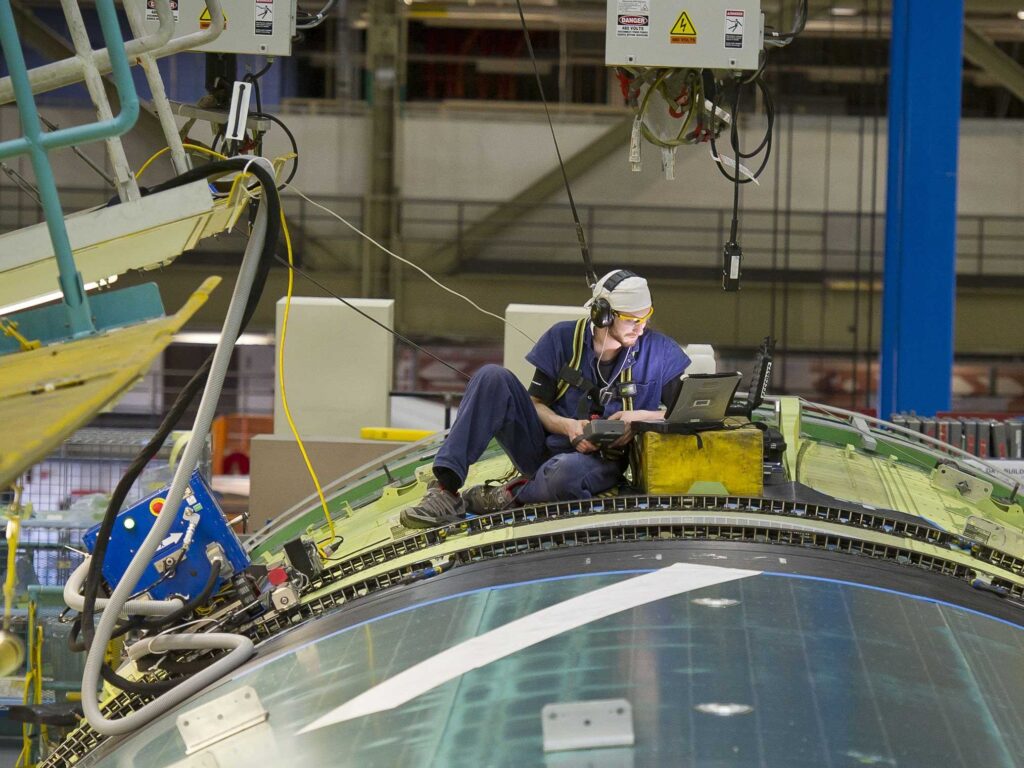Apprenticeships are vital to Aerospace
You are considering Aircraft Engineer as a next step. The aviation industry looks exciting. Airplanes are cool and travel is exciting. You are good with your hands and feel academic routes, or working in an office, is not for you.
Aerospace Apprenticeship is how I got where I am. If I could go back, I wouldn’t change a damn thing. Is it the bottom of the ladder? Yes, it is. But boys and girls and them – that’s a fantastic place to start.

On The Job Training
Now if you’ve already googled salaries, you will have seen the various occupations (Engineering or AMT included) that can be reached and what the high paying jobs might be. But I want you to click on that RED X in the top right corner of your browser.
You don’t need it. Because the top of the Engineering Manager ladder goes farther than you can imagine. And being an Apprentice is the perfect start.
Understanding how aircraft work, or stop working, and learning how to fix them puts you in a valuable category of people. If you can expand that knowledge into business or sales, your earning potential is unlimited, and the keys of that C-level suite could be yours. If that’s your bag.
Aircraft Leasing Companies and Investors to great lengths to find the best people to watch over their assets. And pay handsomely for it.
Apprenticeship Experience
There are aerospace apprenticeships and internships in many areas. But most Aerospace apprenticeship opportunities are in the Engineering and Technical areas (electrical, IT and Metal work included). This article will focus on that. BUT – we have a whole page on Apprenticeships with resources and links to other areas.
Direct entry into an Apprentice program is typically by students in the last year of high-school, or (or Secondary school in the EU, whatever is the last year of formal education just prior to third level education such as University or College).

You will be at least 18 years of age (when you apply for the program). There are different names for the final role you want to achieve, but the FAA calls it the AMT (Aircraft Maintenance Technician) Certificate and in Europe it’s the AML (Aircraft Mechanic’s license).
The regulations are Part 65 in the US and Part 66 in the EU. Here are the FAA mechanics FAQs and Europeans can find their data here. but both are similar in that they both have Two Pathways to qualification.
One is Full-time classroom instruction with practical training at an approved training facility. The other is solely Job Learning with Part 145/147 approved companies. But be careful. Licensing is a tricky area, and you need to do your homework.
Why? Well qualifications in some countries may not be accepted in others. So how you achieve the Certificate needs to be researched depending on where you want to work.
Employers Time
Now we don’t just pull any old data off websites and rivet them up here. That’s not how we work here at WT towers. We looked at only top airlines who are currently offering apprenticeship programs right now. They are listed below, and these sites can answer questions you may have.
There are videos, pathway descriptions, FAQ’s so you should get a rounded idea of the truth about apprenticeships. These are subject to change, however. As a cyclical business, Aviation programs can appear and disappear quickly depending on Industry demand.
Right now, in 2022, there is HUGE demand. This should continue as we address sustainability and focus on aviation innovation to get us to #NetZero2050.
If in doubt just use the google machine and see who’s hiring. You can also use the job search engines such as Indeed, where apprenticeships are readily advertised.
Aerospace Apprenticeship Programs
But we did collate the top ten “asks” from Airlines. And we will tell you how valid these asks are.

- You are 18. Good with your hands on both physical and digital machines
WT Comment – Agreed but obvious. Age can vary though. In Australia for example, 15-year-old and up gain entry. Good on Ya!
- You have a high-school diploma, or A GED or a secondary school certificate
WT Comment – Yes this is a minimum, but the good news is that they won’t focus on specific subjects. Just get that document.
- Your goal must be to obtain the Part65/66 Airframe or Powerplant license within a prescribed period.
WT Comment – Correct. Companies don’t want their time to be wasted any more than you do. A contract you sign will dictate this and if you veer off this path your journey will end.
- You have good Mechanical and electrical problem-solving skills, especially under pressure.
WT Comment – Former yes, latter no. Employers want it all, but if you can solve problems in a reasonable amount of time you will be a valuable trade professional. Just maybe not out on the “line”.
- It’s good if you have some mechanical or engineering experience. Especially in aviation.
WT Comment – Agreed, because we see aviation as vocational, we do see a benefit to previous contact with Aircraft.
- You are a team player with effective communication skills. In English.
WT Comment – 100% correct- If you prefer to work alone or hate being told what to do, this is not the job for you. You will rely on experienced mentors, and they will rely on you. Lone wolves who don’t seek help are not welcome.
- You must be physically fit and able to perform physical tasks easily. Days, nights and on weekends. You don’t mind heights, confined spaces, noise, or the cold
WT Comment – True. Some aircraft parts are heavy, finicky, take time and frustrate you when you are cold and tired.
Aerospace Apprenticeship Duration
That depends on you. But normally 2 or 3 years. It involves you studying and doing exams or working/learning and then doing exams. The goal is to obtain that certificate/license, so the variable is you and your dedication to the career path.
But your employer will set everything out so that you know what’s expected of you and when. They are also good at giving you the help and resources you need to succeed.
Application Process
Here is a list of how these attributes will be validated by your prospective employers during assessment.
- Behavioral screening or psychometric testing of some description could be given. We see this increasingly, done at most registered apprenticeship programs.
- Technical Competency screening. They will check that you can do what you say you can do. Again, this could be done through an online module designed to test for such abilities.
- Security Checks. Because of the access you will have to aircraft, at airports where you will have airside access, your criminal history will be checked. If you are European, they will check this in your home country and any country you lived in in the previous 5 years.
- A Medical test that includes alcohol and drug testing. Airlines and MRO’s test their staff on a regular basis, so this is a continuous issue that should be supported.
Airlines Apprenticeship Programs
Here are links to Aviation Companies that run Apprenticeship programs, so please click through to validate what we have said.
If you are a US citizen, you can see the job outlook for these Technical Roles.


